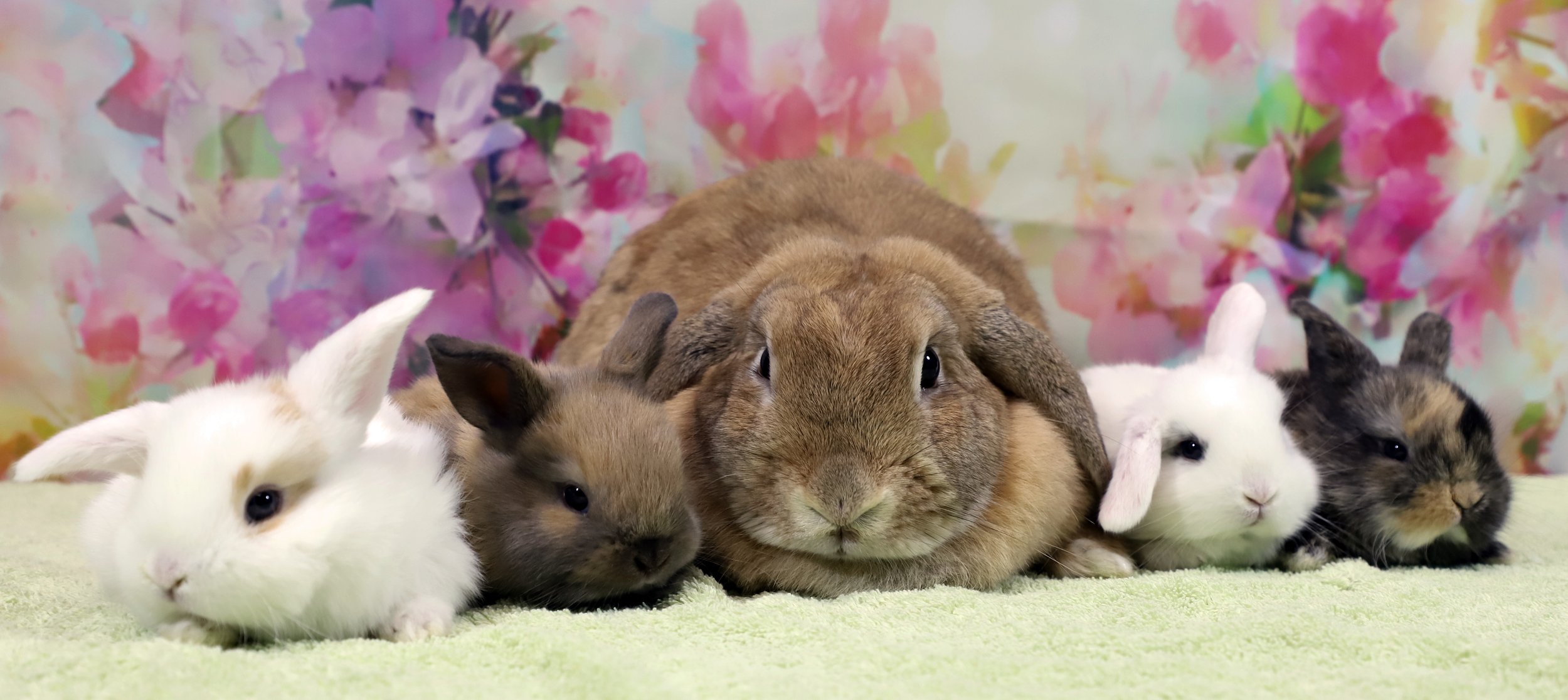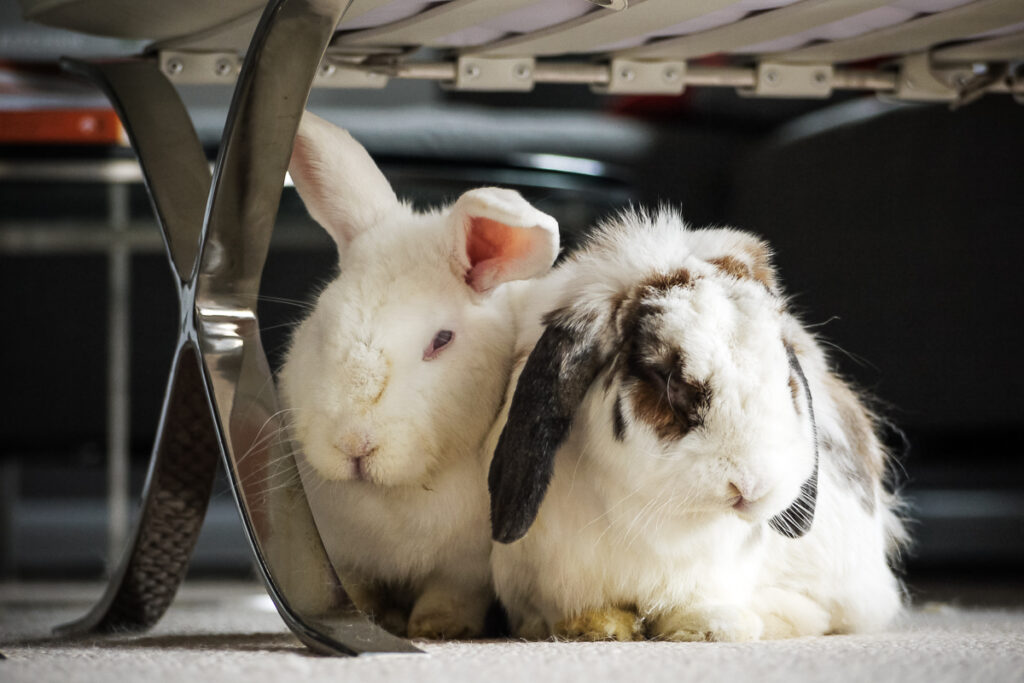One of the most important decisions you can make for the health and well-being of your rabbit is to have them spayed or neutered by an experienced rabbit veterinarian. Spaying and neutering rabbits is a safe procedure with very little risk to their health when performed by an experienced rabbit veterinarian. Never allow a veterinarian with little or no experience with rabbits to perform any surgery on your rabbit. [We have a list of experiences vets and an article with] questions to ask a vet prior to scheduling a surgery to ensure they can perform the surgery safely.
Altered rabbits also will not contribute to the overpopulation of rabbits – over 7 million dogs, cats, and rabbits are killed in animal shelters in the United States every year. Unwanted rabbits are often abandoned in fields, parks, or on city streets to fend for themselves. As a result, they suffer from starvation and sickness and are easy prey to other animals or traffic accidents. Rabbits who are sold to pet stores don’t necessarily fare better, as pet stores will sell to anyone with the money to buy, oftentimes without a screening process. Many of these rabbits will be sold as snake food or as a pet for a small child who will soon “outgrow” the rabbit.
Spaying Your Rabbit

Females can be spayed as soon as they become sexually mature, usually around 4 months of age, but many veterinarians prefer to wait until they are 6 months old, as surgery is riskier on a younger rabbit. The risk of reproductive cancers (ovarian, uterine, etc.) for an unspayed female rabbit is virtually eliminated by spaying. Otherwise, unspayed females have an 85% chance of developing reproductive cancer at some point in their lifetime.
Neutering Your Rabbit
Males can be neutered as soon as testicles descend, usually at 3 1/2 to 4 months. Altered rabbits are healthier and live longer than unaltered rabbits. A neutered male rabbit will live longer as well, as his chances for reproductive cancer are also virtually eliminated, and he will also be far less tempted to fight with other animals due to hormonal aggression.
Altered Rabbits Make Better Companions
They are calmer, more loving, and more dependable once the urge to mate has been removed. Neutering and spaying improve litter box habits. Unneutered male rabbits spray. Males and females are much easier to litter box train, and much more reliably trained after they are altered. In addition, after surgery, rabbits are less prone to destructive (chewing, digging) and aggressive (biting, lunging, circling, growling) behaviors.
Altered rabbits can safely bond with another altered rabbit. Rabbits are social animals and enjoy the company of others. But unless your rabbit is altered, they cannot safely bond with another rabbit of the opposite sex or same sex, due to sexual and aggressive behaviors triggered by hormones.
©Copyright San Diego House Rabbit Society. All Rights Reserved. Republished with the permission of the author.

